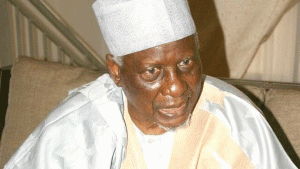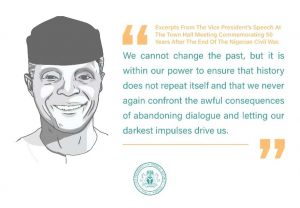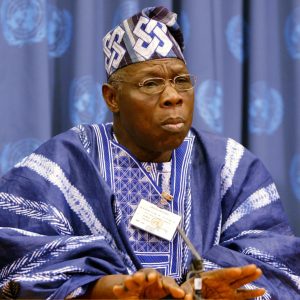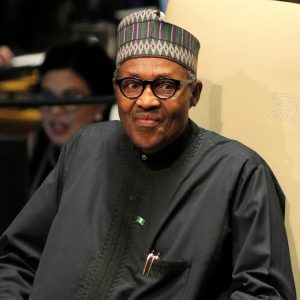Those still searching for evidence for the claim that reality is what human beings make of it might never get a better evidence than the conversational convergence on January 15th in Nigeria this year. Since 1966, January 15th has stood as the marker for the impossibility of nation building in Africa – death, rupture and thick enemy images along ethno-religious hook-ups. In 2021, the dynamics built up to where a representative sample of Nigerian elite all subscribe to an ideology of ‘Never Again’.
Discourse analysts would say, that is the Nigerian moment – the moment a thick signifier arrives that can fire a sufficiently critical mass to enact consensus. Here, ‘Never Again’ is not just about averting any other war as Biafra but also about reconstituting Nigeria in such a manner that no one is permanently looking over his or her shoulder in suspicion of the next person.
Critics of discourse – reality nexus would wonder how mere words can fire popular imagination to construct reality. But students of war and mass atrocities would say it is by mere words that the worst excesses in human history were carried out.

Alhaji Tank Yakassai, of the old radical tradition in the North
 It is doubtful if there are many Nigerians who were not happy to see the Pat Utomis, the Adebanjos, the Kukahs, the Peter Obis, the Tanko Yakassais, Baba Ahmeds coming together to talk Nigeria. These are no angels but none of them is less than a leader in his own right and spokesperson for one significant tendency or the other in the difficult Nigerian family.
It is doubtful if there are many Nigerians who were not happy to see the Pat Utomis, the Adebanjos, the Kukahs, the Peter Obis, the Tanko Yakassais, Baba Ahmeds coming together to talk Nigeria. These are no angels but none of them is less than a leader in his own right and spokesperson for one significant tendency or the other in the difficult Nigerian family.
Reading Adebanjo describing himself as a fighter for one Nigeria might be all that a generation of Nigerians bred on Nigeria-as-the-rallying-point-nation-for-the black-world needed to hear to be happy. Beyond the radical nationalism driving that is also the reality that there are minorities of the minority in this country whose only security guaranty is in a larger Nigeria, not in any smaller, diminished Nigeria. This is the point restructuring is still poor in handling. So, Adebanjo’s statement is significant. He could not have been grandstanding in saying so because the pragmatic nature of every such statement also makes such suspicion to be grandstanding.
Perhaps, what is happening is that the Nigerian elite is coming to terms with two different contentions simultaneously. The first might be no other than Professor Isawa Elaigwu’s contention in 2016 that:
There is nothing like any mistake of 1914. All countries are artificial. The boundaries are artificial but it is left to you to make it natural. I read things about the civil war and I just laugh. People talk about the civil war from their own ethnic standpoint. I thought that the essence of all these is that, collectively, we have all made mistakes and it is time to learn from it. Instead of that, you hear people talk of mistake of 1914. What of Britain? Has it not gone beyond the mistakes of yester years? What of Austria, Germany, old USSR, look at Ukraine and Crimea? So, I laugh when people take themselves too seriously, wasting their time about the mistake of 1914. Can’t you see how other countries are solving their own? Isn’t the challenge before us to build a state from a crude state we inherited and make a contribution instead of wallowing in the past? Take cognisance of the past, critically learn from it, contribute constructively to the present and lay the foundations for tomorrow for our children. We are not doing that. We are busy talking about the mistake of 1914.
The second would be the Dr. Usman Bugaje’s standpoint that the challenge facing Nigeria is not a matter of waiting till 2023 but an innovative engagement with the here and now to save the country first before talking of who becomes president or whatever in 2023. The expectation was that such a standpoint would echo across. It might have been so but it was not a loud echo beyond intra-elite conversations behind the scenes. In contrast to such is the open conversation with performative impacts on the larger population in terms of radical democratic actions. There are times intra-elite conversations are important but there are also times when certain crop of signifiers must weave and wave a banner of hope before the mass of people totally lost as far as meaning of life is concerned. That void is where the danger lies because it means false messiahs can try to emerge to occupy space and pose as agents of liberation.
In this ‘Never Again’ conversation, there is a sense in which Peter Obi has summarised the trouble with Nigeria when he said that: we cannot continue with the way we are today; across the country, from local government to the highest level, we have incompetent leadership and they don’t have the capacity to solve the country’s problem. You don’t go to a Formula 1 competition with a Molue driver”
It does not require being a fan of the former governor of Anambra to say that in that sentence, he has put his fingers on what is making Nigeria a midget of a nation when it should be a giant. There is hardly anything more to add. But ethnicists, bigots and sundry campaigners would not allow the country to harp on this. Yet, as it is today, just about everyone thinks that he or she can be a good enough local government Chairman, governor, minister and even president of Nigeria.

Chief Olusegun Obasanjo in a New York Times pix

President Buhari in a New York Times pix
Nigeria itself contributes to this. In 2010, after the demise of Umaru Yar’Adua, Chief Vincent Ogbulafor who was PDP helmsman then announced at the instance of the governors that a Northern replacement would be found in 2011. Immediately, he was shouted down and subsequently embarrassed out of the national scene. He had offended some power brokers. But only for the entire Nigeria to, six years later, troop back to the same Katsina State to pick Muhammadu Buhari, throwing Goodluck Jonathan out to do that. With what an elder calls Jonathan’s ‘live and let live’ human nature, who would have been a better groomed presidential material than him in 2015 if Nigeria had invested in grooming him between 2011 and 2015 by being made to do the shuttling he is doing now and gather more insights about how the (Nigerian) world works? Instead of doing that, people started talking of zoning as nothing but a gentlemen agreement within just PDP.
So, collective opportunism compounds the leadership recruitment and selection problem in Nigeria. Whether the on-going conversations can resolve that problem is yet to be seen but coming up with a thick signifier like ‘Never Again’ is a powerful enough kick-off. It doesn’t matter that the pigeons reportedly refused to fly at the Remembrance ceremony. From the point of view of Posthuman theory, the refusal of the pigeons to fly can also be regarded as part of the on-going conversation. It is from the competition between the different strands in the conversation that a consensus would emerge and become the rallying point for progress.
So far, the ‘Never Again’ track can be identified. So also President Buhari’s track which is that the elite should be fair in rating him. The paradox in that can be very interesting. The president is being criticised for being so unfair to Nigeria in composing his security team while the president is demanding fair rating from the same Nigeria. What a circuitousness! It is unlikely the Constitution would not have to be touched in certain areas after the Buhari experience in cabinet politics. Still, a discourse is not bad or good, true or false because it is circuitous. It is bad and false or good and true only when it is defeated/defeats a contending discourse.
The potential of ‘Never Again’ discourse is how to bring it down to become the property of the majority in the impending struggle between it and other narratives of what Nigeria is going through. In other words, the next stage in the politics of ‘Never Again’ is what students of Hegemony call ‘the war of position’ that is usually the eve of victory for any standpoint successfully popularized into a hegemonic consensus.
Those who say that Nigeria is beyond comprehension might have a great point. Obasanjo, for instance, says you wake up by 7 a.m thinking that, from all the evidence from last night, the country’s doom would become real before or by midday. But only to begin to see by around 9 am that the country has moved beyond implosion and in a completely different direction. Although some of our peace scholars, particularly Chris Kwaja who made this point also on January 15th, believe we have not been good at winning the peace, whoever thought that all these could have been happening on a January 15th in Nigeria?
‘Never Again’ is thick enough a signifier with which to mount the campaign for the recovery of Nigeria, to abolish Nigeria falling into the hands of slackers and anti-modernists, from the local governments to the presidency, ala Peter Obi.




























